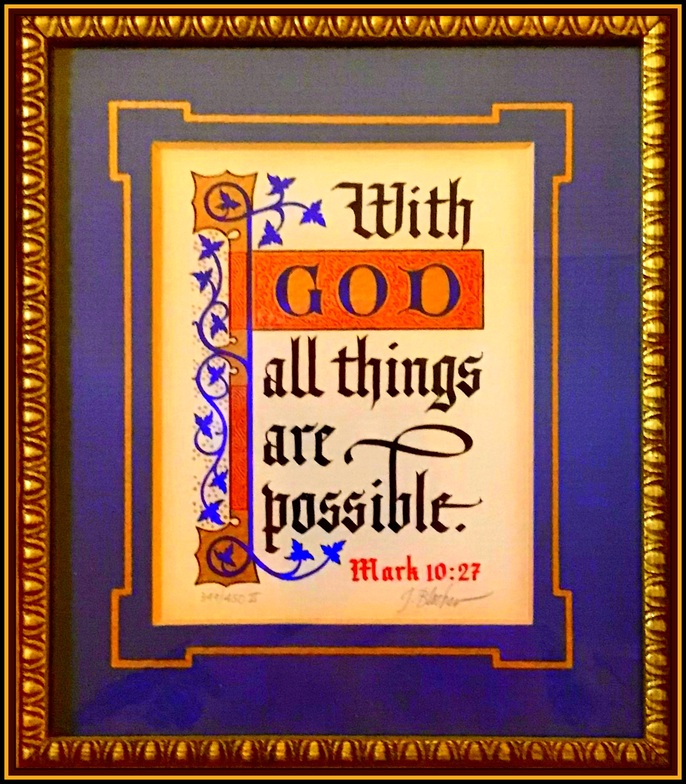Friday Focus Aug. 22, 2025. Reflection on Matthew 19. 23-30
"For men this is impossible, but for God all things are possible"
In recent years, there has been considerable attention given to what some Christians refer to as ‘the prosperity gospel.’ Some well-known conservative evangelical and charismatic preachers such as Kenneth Copland, Benny Hinn, and Joel Osteen contend that material and especially financial success are signs of divine grace and favour.
Although such ‘theology’ appeals to many in the age of Donald Trump, it conflicts with the core of Jesus’ message, as is clearly evident in this past Tuesday’s Gospel reading from Matthew (19.23–30) in which Jesus declares:
“It will be hard for one who is rich to enter the Kingdom of heaven.”
To emphasize the point, Jesus continues with the memorable metaphor of a camel passing through the eye of a needle. These statements set the tone for a discourse on the inversion of worldly values in the Kingdom of God, a theme that echoes throughout the Gospels.
The disciples are astonished at Jesus’ teaching, and ask: “Who then can be saved?” Like the proponents of the ‘prosperity gospel’ today, many Jews at the time of Jesus associated wealth with divine blessing.
St. Jerome, in his commentary on the Gospel of Matthew, interprets the ‘eye of a needle’ as a narrow gate, signifying the difficulty for the wealthy to detach themselves from their riches. It is not that they are wealthy that is the problem, but rather, the trust they place in the value of money and material possessions rather than God.
Jesus’ response to the disciples’ question, “For men this is impossible, but for God all things are possible,” shifts the focus from human efforts to divine grace.
St. Augustine, in his writings, reflects on this passage by emphasizing the sovereignty of God’s grace over human endeavours. He argues that salvation is entirely dependent on God’s grace, which can transform even the hardest hearts and detach them from their worldly attachments.
Human effort alone is insufficient for salvation; it is God’s grace that makes the impossible possible.
Peter is not satisfied with Jesus’ answer to the disciples’ question and asks: “What will there be for us?” Although the disciples have given up everything to follow Jesus, they remain tied to worldly concerns.
Jesus’ assurance that they will “sit on twelve thrones” and that those who sacrifice for His sake will receive “a hundred times more” and “inherit eternal life” reinforces the requirements and rewards of faithful discipleship. Reflecting on this passage, St. John Chrysostom observed that sacrifices made for the Kingdom of God are never in vain but are rewarded abundantly in the life to come.
The concluding verse, “But many who are first will be last, and the last will be first” encapsulates the paradoxical nature of the Kingdom of God. This reversal of expectations challenges the values of the world, where wealth and power often determine one’s status.
In the Kingdom of God, however, humility, sacrifice, and dependence on divine grace are the true measures of greatness. St. Gregory the Great, reflects on this paradox by noting that those who are exalted in this life are often humbled in the next, while those who are humble in this life are exalted by God.
Matthew 19.23–30 presents a challenging message about the spiritual dangers of wealth and the necessity of divine grace for salvation.
From this passage we learn the importance of detachment from material wealth, the centrality of God’s grace in the process of salvation, and the promise of eternal reward for those who faithfully follow Christ.
This passage serves as a powerful reminder that in the Kingdom of God, worldly values are often inverted, and it is through God’s grace, not human effort, that salvation is attained.
Norman Knowles+

